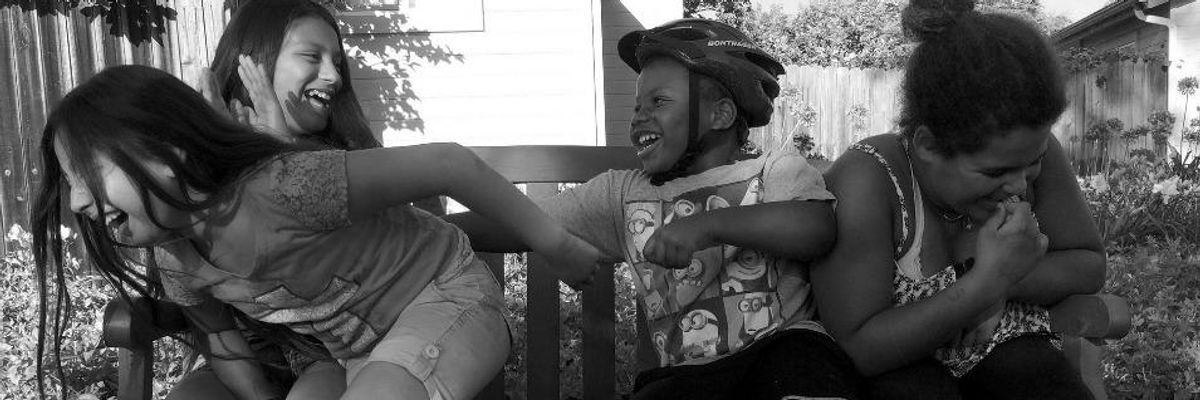Somalia on Thursday completed its ratification of the Convention on the Rights of the Child--becoming the 196th nation to do so and making the United States the only United Nations state outside of the treaty.
The UN Committee on the Rights of the Child explains that the Convention, adopted in 1989, "is the most widely ratified international human rights treaty, sets out a number of children's rights including the right to life, to health, to education and to play, as well as the right to family life, to be protected from violence, to not be discriminated, and to have their views heard."
As for why the U.S. would not ratify this convention that it helped draft and has already signed, Amnesty International has explained that conservative organizations like the Christian Coalition, Family Research Council, and Focus on the Family, "have made a significant effort to portray the Convention as a threat. The majority of the oppositions claims stem from unfounded concerns related to national sovereignty, states' rights, and the parent-child relationship."
The convention needs the approval of two-thirds of the U.S. Senate, where, Amnesty continues, it "has encountered a notable level of opposition" as a result of these misconceptions.
Jo Becker, Advocacy Director of Human Rights Watch's Children's Rights Division, writes about the main roadblock the Convention faces in the U.S.:
The main legal challenge for US ratification is that it remains the only country to sentence children to life in prison without the possibility of parole - a punishment the treaty specifically prohibits. The US Supreme Court has issued several decisions in recent years that have progressively narrowed the use of this sentence against child offenders, and states should prohibit it completely. The US should ratify the treaty and declare that it is working to end the practice in the states that allow it.

